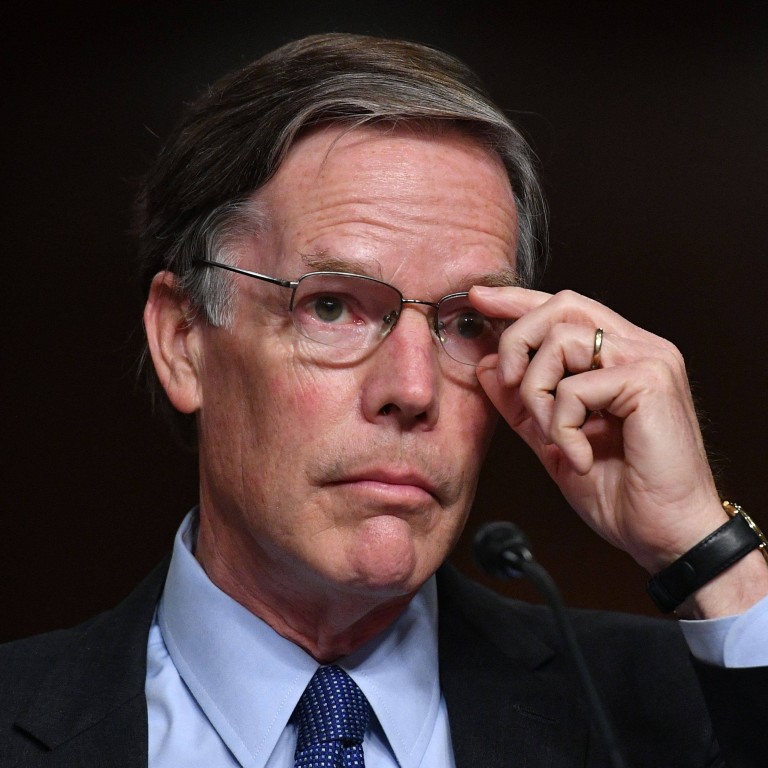
US embassy in China urges Americans to stock up on daily necessities amid Covid surge and protests
- Control measures could include residential quarantines, mass testing, transport disruptions and possible family separation, says mission in Beijing
- ‘We encourage all US citizens to keep a 14-day supply of medications, bottled water, and food’, it adds
In a statement directed at American citizens on Monday, the embassy said Chinese authorities had expanded Covid-19 prevention restrictions and control measures as outbreaks happen.
The measures could include residential quarantines, mass testing, closures, transport disruptions, lockdowns and possible family separation, according to the statement.
“We encourage all US citizens to keep a 14-day supply of medications, bottled water, and food for yourself and any members of your household,” the embassy said.
Nicholas Burns, the US ambassador to China, and other diplomats in the country have regularly raised concerns related to the Covid restrictions “directly” with senior Chinese officials and will continue to do so, the embassy added.
That statement published two days before the State Department ordered the departure of non-emergency US government employees and their family members from its consulate in Shanghai.
As of this week, China’s Covid-19 case numbers have reached new highs since the pandemic began, with more than 40,000 infections reported on Sunday.
Multiple urban centres across the nation of 1.4 billion people have recently beefed up their restriction measures.
What are the key challenges facing China’s economic recovery in 2023?
“The rapid increase in public discontent over the lockdowns over the past weekend may further cloud the road to reopening,” he wrote.
Foreign investors have continued to express their worries over what they perceive as China’s lack of a clear exit plan and “inconsistent” practices by local bureaucrats in implementing Covid controls.
The concern persists despite the central government releasing a 20-measure package meant to optimise the country’s tactics.
The European Union Chamber of Commerce in China last week submitted to the Chinese commerce ministry an array of recommendations to improve the country’s anti-Covid measures, including clear timelines for the roll-out of mRNA vaccinations and antiviral drugs to lay the groundwork for fully reopening the country.
Event in Hong Kong’s Central marks mainland China fire that killed 10
In Monday’s statement, the US embassy said it was actively working with and helping American citizens who are experiencing challenges tied to the recent rise of Covid-19 infections in China.
“Hope the Americans in China will be safe and healthy, and China and the US should join hands to move forward!” read a comment on Weibo that elicited over 500 likes.
“Please don’t make trouble in China,” wrote another comment that received some 700 likes.
Officials in China ease some Covid measures, ban exit blocking amid protests
“The central government may soon need to choose between more lockdowns and more Covid outbreaks,” wrote Hui Shan, the investment bank’s chief China economist, in a note on Sunday.
Mark Williams, chief Asia economist at Capital Economics, argued that the likelihood of government leadership changing course and ending its zero-Covid policy in response to the protests was low.
“The authorities will not allow a protest movement to occupy China’s streets for any length of time,” said Williams on Monday. “If the protests continue, a crackdown is very likely.”
“They have no good options in the near term to address protesters’ demands,” he added. “Relaxation of strict Covid-control policies would almost certainly lead to a surge in deaths that would destroy the leadership’s claim to have responded effectively to the pandemic.”

